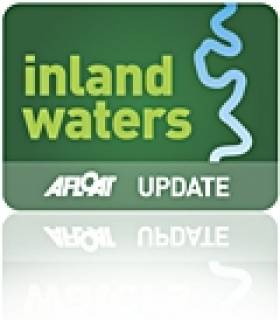Displaying items by tag: Waters
Winter Closures on the Royal Canal, Grand Canal and Barrow Navigation
#WATERWAYS – In its latest marine notice Waterways Ireland has advised masters and owners of vessels that the following planned closures will be in place for the winter of 2011-2012.
GRAND CANAL – MAIN LINE
2nd Lock, Inchicore The canal will be closed at the 2nd Lock from December 2011 to February 2012 for the replacement of lock gates.
Ardclough The canal will be closed east of Henry Bridge to facilitate the laying of a storm water culvert by Kildare County Council – dates to be confirmed.
Tullamore The canal will be closed from 7th November 2011 to 5th March 2012 to facilitate the construction of three footbridges and a boardwalk by Tullamore Town Council.
Ballycommon The canal will be closed to facilitate dredging – dates to be confirmed.
GRAND CANAL – BARROW LINE
Glenaree to Rathangan The Barrow Line will be closed between 22nd Lock at Glenaree and 23rd Lock at Rathangan from 1st November 2011 to 17th March 2012 to facilitate dredging.
ROYAL CANAL
Spencer Dock, Newcomen Bridge There will be no further lifts of Newcomen railway bridge until the 2012 boating season.
1st to 5th Locks, Dublin The locks will be closed from November 2011 to March 2012 for repairs to the gates.
5th and 6th Levels, Cabra The canal will be closed until January 2012 for dredging and relining of the channel.
8th Lock, Reilly’s Bridge The lock will be closed from November 2011 to March 2012 for repairs to the gates.
33rd to 34th Lock The canal will be closed for essential maintenance works – dates to be confirmed.
Mosstown Harbour to 41st Lock The canal will be closed for essential maintenance works – dates to be confirmed.
BARROW NAVIGATION
Bagenalstown Lock The lock will be closed for essential maintenance – dates to be confirmed.
























































